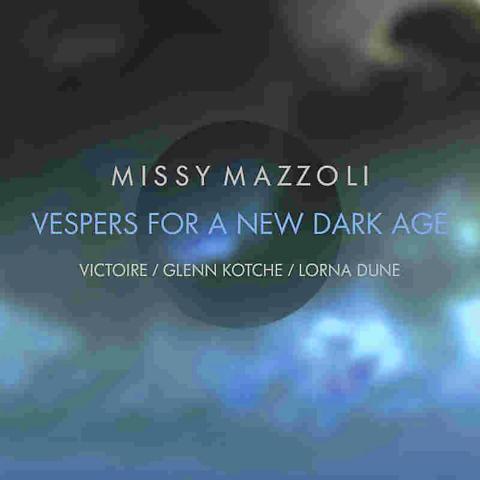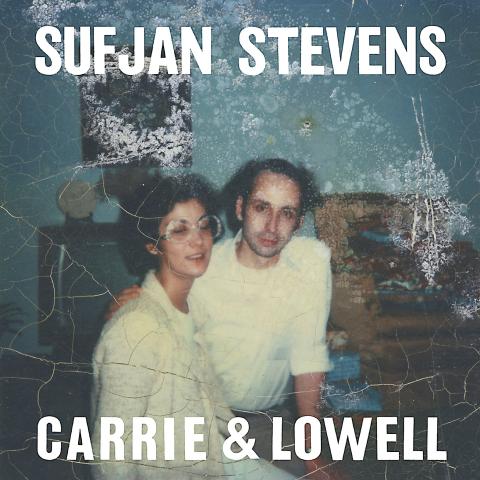The Past, the Present, the Future,
Jodeci,
Sphinx/Epic

A few months ago the soul savant D’Angelo released a new album, Black Messiah, some 14 years after his previous one, Voodoo. On its own, it was an accomplishment, but it was also a reminder of many things that today’s R&B mainstream lacks: political engagement, the warmth and tension of a live band, a voice with fascinating crevices.
Just as R&B badly needs D’Angelo’s righteous howl, it also needs K-Ci Hailey’s ecstatic wail. Hailey is the centerpiece of Jodeci, which also includes his brother JoJo and the brothers Donald and Dalvin DeGrate. In the early and mid 1990s, Jodeci was the group that fully imported hip-hop’s louche swagger into soul.
The Past, the Present, the Future, the fourth Jodeci album, arrives 20 years after the last one. (There have been some projects by individual members and by the Hailey brothers together, but nothing of note since 2000, the same year that D’Angelo’s Voodoo emerged.) And if you can forgive the album’s concessions to the musical innovations of the last decade or so, like the Timbaland-assisted production on Incredible, it’s a logical, if slightly aged, continuation of the group’s music from its prime.

The best Jodeci songs are slick marches that focus on the body, like this album’s Checkin for You and Stress Reliever. Atop it all is K-Ci. He may have roots in the church, but the Lord’s favor isn’t what his music typically craves. When K-Ci is seducing, he’s pleading and moist. And he gets better as he devolves, his finest moments less about lyrics than post-verbal utterances. (One exception here is Jennifer, an anguished ballad that shows off some of K-Ci and JoJo’s peak harmonizing.)
His deepest feelings exist somewhere beyond human vocabulary. He’s less ostentatious about this than he once was, but he can still catch that spirit, as on this album’s final song. Nobody Wins is a measured number about failed love until K-Ci really gets hold of it: “Nobody! No buh dee! Nobahhhhdy!”
— JON CARAMANICA, NY TIMES NEWS SERVICE

Vespers for a New Dark Age,
Missy Mazzoli,
New Amsterdam
The composer and keyboardist Missy Mazzoli has a thing for unlikely connections and startling gestures, and one of her gifts is the ability to tease out the hidden logic behind her choices. Her ravishing, unsettling album Vespers for a New Dark Age unfolds as a meditation on technology and spirituality, alienation and self-interest. Its ominous but propulsive score ranges from the chamber-operatic to the electronic and semi-abstract.
Mazzoli conceived Vespers as a secular response to a liturgical tradition. Rather than sacred verses, she incorporated text by contemporary poet Matthew Zapruder, particularly his 2010 collection Come on All You Ghosts. She composed the piece not only for her expressive new-music ensemble, Victoire, but for percussionist Glenn Kotche, best known as the drummer in Wilco, and for several classically trained singers: Martha Cluver and Virginia Warnken of the vocal cohort Roomful of Teeth, and Mellissa Hughes, a more regular collaborator.
For most of the piece, which spans five movements with three wordless interludes, these singers directly address some form of the divine. But Zapruder’s poems aren’t inherently formal - he has a way with the quotidian digression, and there’s disarming ambiguity at work here. “Hello Lord,” goes the opening line of a track by that title. Are you sorry you woke me? A later track, New Dark Age, opens with the inverse scenario: “Hello Lord/Sorry I woke you.”
Elsewhere the phrase “come on” becomes a building block, or a puzzle piece, deployed in layered or echoing repetition. It happens most bewitchingly on Machine, a track driven and punctuated by Kotche’s meticulous drumming, alongside a plaintive, drifting violin and a gluey electronic undertow.
Keyboardist and electronics artist Lorna Dune, of Victoire, helped produce the album, and there’s probably no way to parse the lines of her involvement. One possible frame of reference would be the only track on the album that is not a part of the Vespers suite: her stylishly spooky remix of A Thousand Tongues, which Mazzoli originally wrote for cellist Jody Redhage.
A Thousand Tongues is a somber setting of a five-line poem by Stephen Crane. Sung in this version by Deidre Muro, it’s about the futility of striving for truth. The only thing about it that feels out of place is the ironclad certainty of its despair.
— NATE CHINEN, NY TIMES NEWS SERVICE
Carrie & Lowell,
Sufjan Stevens,
Asthmatic Kitty
A hushed, intent Sufjan Stevens contemplates death, grief, family and memory on his quietly moving new album, Carrie & Lowell, in songs that entwine autobiography and archetype. The music is restrained and meticulous, all graceful melodies, plucked strings and shimmery keyboard tones. But ungovernable circumstances and emotions course through the lyrics.
The album is named after Stevens’ mother, Carrie, who died in 2012, and his stepfather, Lowell, who was married to her for five years as the 1980s began and now works at Stevens’ label, Asthmatic Kitty. In a Pitchfork interview, Stevens said Carrie struggled with mental illness and alcoholism, and that when he was a year old, she left her children with their father, Rasjid Stevens. Sufjan saw her only occasionally through the years, though he was with her at the end.
As a child in the early 1980s, he also spent three summers in Oregon with Carrie and Lowell. Images from those visits, not all of them idyllic, are sprinkled through the songs; “When I was 3, 3 maybe 4/She left us at that video store,” he sings in Should Have Known Better. Another particular Oregon spirit suffuses the music: the sound of Elliott Smith, a songwriter long associated with Portland, who placed his own sorrows and uncertainties in similarly fragile settings.
While the details may come from Stevens’ personal life, the songs face up to universals: grief, guilt, anger, questions of faith, self-destructive impulses, the sense of absence, the sense of finality. “I forgive you mother, I can hear you,” Stevens sings in the album’s opening song, Death With Dignity, which concludes, “You’ll never see us again.” In Eugene, he sings, “I’ll never forget/I just want to be near you”; in The Only Thing, he wonders, “How do I live with your ghost?” And in Fourth of July, he sings a deathbed conversation that ends with a stoic refrain: “We’re all gonna die.”
Most of Stevens’ albums have flaunted orchestral reinforcements and electronics. “Carrie & Lowell” is more subdued — it doesn’t use drums — but it is by no means plain. The foreground may be folky guitar or simple, steady chords from a piano, but Stevens places them in a ghostly realm, his own voice overdubbed into a hovering choir, subtle auras of reverb. Drawn to the Blood, which conjures biblical images and wonders, “What did I do to deserve this?,” begins with a lone strummed guitar, later joined by one persistently repeating keyboard note. But after a final question — “How did this happen?” — the entire last minute of the song is a series of edgeless, sustained chords: a refuge from sorrow or a glimpse of eternity.
— JON PARELES, NY TIMES NEWS SERVICE

In the next few months tough decisions will need to be made by the Taiwan People’s Party (TPP) and their pan-blue allies in the Chinese Nationalist Party (KMT). It will reveal just how real their alliance is with actual power at stake. Party founder Ko Wen-je (柯文哲) faced these tough questions, which we explored in part one of this series, “Ko Wen-je, the KMT’s prickly ally,” (Aug. 16, page 12). Ko was open to cooperation, but on his terms. He openly fretted about being “swallowed up” by the KMT, and was keenly aware of the experience of the People’s First Party

Aug. 25 to Aug. 31 Although Mr. Lin (林) had been married to his Japanese wife for a decade, their union was never legally recognized — and even their daughter was officially deemed illegitimate. During the first half of Japanese rule in Taiwan, only marriages between Japanese men and Taiwanese women were valid, unless the Taiwanese husband formally joined a Japanese household. In 1920, Lin took his frustrations directly to the Ministry of Home Affairs: “Since Japan took possession of Taiwan, we have obeyed the government’s directives and committed ourselves to breaking old Qing-era customs. Yet ... our marriages remain unrecognized,

Not long into Mistress Dispeller, a quietly jaw-dropping new documentary from director Elizabeth Lo, the film’s eponymous character lays out her thesis for ridding marriages of troublesome extra lovers. “When someone becomes a mistress,” she says, “it’s because they feel they don’t deserve complete love. She’s the one who needs our help the most.” Wang Zhenxi, a mistress dispeller based in north-central China’s Henan province, is one of a growing number of self-styled professionals who earn a living by intervening in people’s marriages — to “dispel” them of intruders. “I was looking for a love story set in China,” says Lo,

During the Metal Ages, prior to the arrival of the Dutch and Chinese, a great shift took place in indigenous material culture. Glass and agate beads, introduced after 400BC, completely replaced Taiwanese nephrite (jade) as the ornamental materials of choice, anthropologist Liu Jiun-Yu (劉俊昱) of the University of Washington wrote in a 2023 article. He added of the island’s modern indigenous peoples: “They are the descendants of prehistoric Formosans but have no nephrite-using cultures.” Moderns squint at that dynamic era of trade and cultural change through the mutually supporting lenses of later settler-colonialism and imperial power, which treated the indigenous as